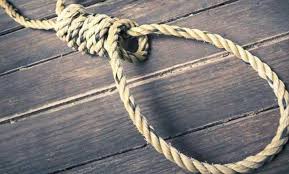
I have recently completed a book by Dr Pamela Wible in which she responds to suicide letters from doctors and their family members (Link is below for the free audiobook). It’s a sobering statistic to learn that on average in the USA, about 300+ of our colleagues call it quits by their own hands ANNUALLY!!!. Unfortunately, there seems to be similar statistics globally among medical students and doctors. I have read about 8 RIP statements to doctors and medical students in the past few months and saddened to hear that the powers that be respond to such findings as “we need to pick a more resilient bunch next time” which I find completely appalling.
I have as a result tried to figure out, what about medicine drives people to this extreme option in dealing with their stress. It must be the culture of medicine that does this, because I would think that we are all very similar when we start high-school compared to when we finish college. I have come to conclude its either medical education or medicine as a vocation as I will elaborate below.
Medical education
- In Australia, before you are even admitted to the university to start studying medicine, there are multitudes of tests which I understand are to ensure you are indeed the cream of the crop. This is in addition to having to pass your final high school examinations with a very high score or like me also having to do 18months of “pre-medical education” before even starting the medical degree. So, most of the people who are eventually admitted to med school are typically some of the smartest of their cohort with commonly type A personality.
- As the career is basically an apprenticeship model of learning, in that typically your lecturers are also doctors, there is always a comparison between trends of the day and how things were when the lecturer themselves was going through training. “In my days we…… or do they teach you anatomy these days?” are common and sometimes very unhelpful comments from some tutors. This model of training can also leave the trainee very vulnerable to the inherent power hierarchy of their supervisor as their evaluations can make or break speciality training applications for example. There are also many different personalities to supervisors and unfortunately, some are the type that is hell-bent on destroying some peoples careers and with the stroke of a pen, are able to do just that.
- From undergraduate degree to full consultant can take up to 15years or hard work ridiculously long hours of often unpaid work, expensive training and frequent examinations which increase the pressure and stress. This protracted learning can lead people to delay life generally i.e. dating, starting a family etc which obviously with the ever-ticking “biological clock” also adds to the pressure, especially for female trainees.
- Usually, to complete medical school and speciality training, there is an expectation that you will be moving houses frequently to do the different rotations required. This comes with learning new staff protocols, meeting new supervisors, learning new systems etc. Also, the usual contract times with hospitals are 12 monthly which means, you are applying for a job annually with no real guarantee unless you know someone who might know someone. Applying for a mortgage with a 12-month contract is one of the many hurdles one might have to deal with as they navigate everything else.
Medicine as a vocation- this profession is one of the options parents of multiple backgrounds give their kids as career choices. “You can only be/marry a doctor, lawyer, engineer, accountant/banker etc”. So by the time you get to start training in the field, the pressure invariably also starts and can trend up with time. Its also a career where one mistake can cost someone their life, where asking for help or asking for time off is sometimes seen as a weakness or where admitting you need help can lead to a report to the regulatory agency.
Without writing a whole new book about doctor suicide, reading this book and watching the related content has certainly been eye-opening for me. Why read such a morbid book or evaluate such morbid statistics I hear you ask… well, when you seem to be losing colleagues like flies, it’s important to take stock. It makes you take a closer look at how things are and what got us here to hopefully reduce the risk to yourself, your colleagues, your loved ones and the next generation of doctors. At the end of the day, we often forget the fact that we are all human, doing the best with what we know to somehow help humanity in some little way. And, in doing all that, sometimes it can become too much and there is nothing wrong in asking for help. I am here to listen if anyone needs to chat…
http://www.idealmedicalcare.org/blog/physician-suicide-letters-answered-free-audiobook/
*Kindly share the book and this blog post- it might save a life.

What a very sad story. Thank you for shining a light on this.
LikeLike